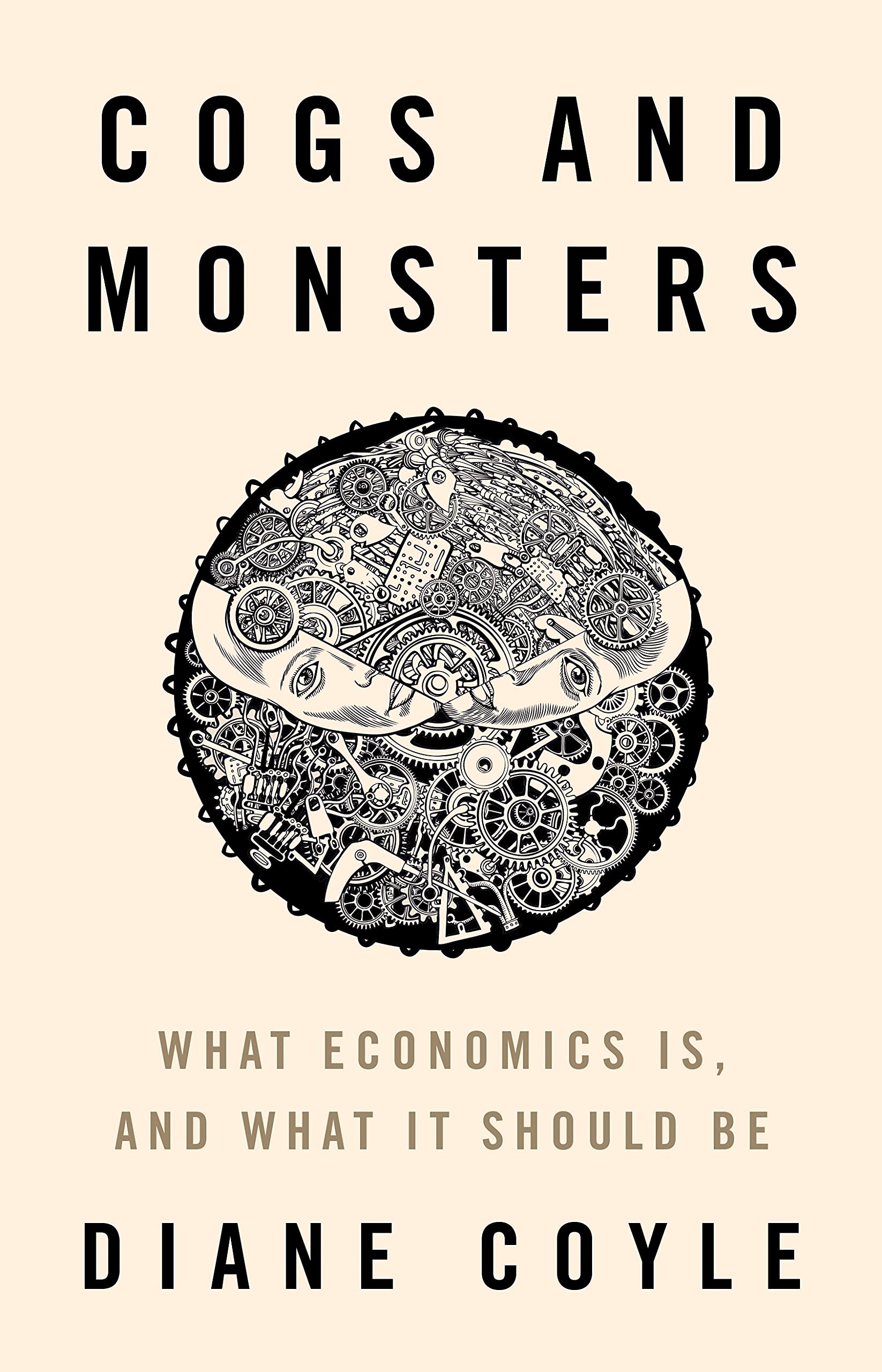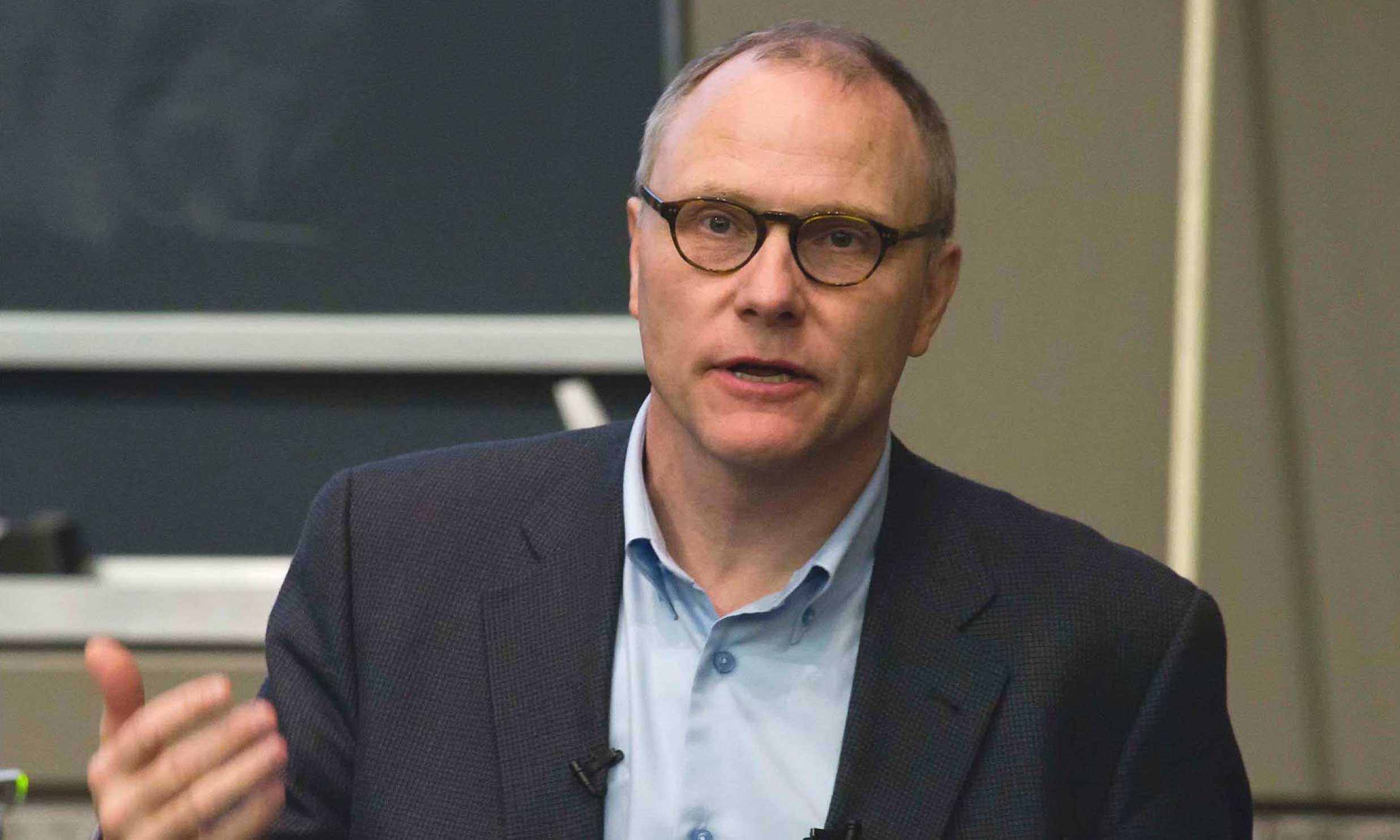The story starts in 2011, when Microsoft led a $4.5 billion consortium purchase of Nortel and Novel. Later than year, Google responded by buying Motorola for $12.9 billion. The funny thing is that Google then proceeded to sell off what it had just bought. By 2014, almost nothing was left of Google-owned Motorola. Nothing except patents. And that, Mouré thinks, was the whole point.
Mouré argues that this acquisition war was ultimately a battle over intellectual property. Google and Microsoft were competing to control the mobile market. And the way to do that was not to ‘produce’ anything. It was to command property rights.
The timing of the 2011 patent war, Mouré notes, was no coincidence. It corresponded with the moment when Google’s profits caught up to Microsoft. Figure 1 shows the trend. This is Mouré’s analysis of ‘differential profit’ — the profit of Microsoft and Google measured relative to the average profit of the S&P 500. You can see that Google entered the 21st century as a bit player. But by the 2010s, Google was a behemoth whose profits matched those of Microsoft.
 Professional investment may be likened to those newspaper competitions in which the competitors have to pick out the six prettiest faces from a hundred photographs, the prize being awarded to the competitor whose choice most nearly corresponds to the average preferences of the competitors as a whole; so that each competitor has to pick not those faces which he himself finds prettiest, but those which he thinks likeliest to catch the fancy of the other competitors, all of whom are looking at the problem from the same point of view. It is not a case of choosing those which, to the best of one’s judgement are really the prettiest, nor even those which average opinion genuinely thinks the prettiest. We have reached the third degree where we devote our intelligences to anticipating what average opinion expects the average opinion to be. And there are some, I believe, who practice the fourth, fifth and higher degrees.
Professional investment may be likened to those newspaper competitions in which the competitors have to pick out the six prettiest faces from a hundred photographs, the prize being awarded to the competitor whose choice most nearly corresponds to the average preferences of the competitors as a whole; so that each competitor has to pick not those faces which he himself finds prettiest, but those which he thinks likeliest to catch the fancy of the other competitors, all of whom are looking at the problem from the same point of view. It is not a case of choosing those which, to the best of one’s judgement are really the prettiest, nor even those which average opinion genuinely thinks the prettiest. We have reached the third degree where we devote our intelligences to anticipating what average opinion expects the average opinion to be. And there are some, I believe, who practice the fourth, fifth and higher degrees.
 Macroeconomists seem to me the biggest offenders in not taking such empirical issues (of practical data handling) seriously enough. This might sound like sheer contrarianism given that macroeconomists are constantly wielding data; after all, their business is analysing the behaviour of the whole economy and forecasting its future path. My concerns are, first, that too few think about the vast uncertainty associated with the statistics they download and use; and secondly, how difficult it is to draw definitive conclusions about economy-wide phenomena, the aggregated outcomes of choice made by millions of businesses and consumers interacting in specific historical and geographic contexts, and social and political relations.
Macroeconomists seem to me the biggest offenders in not taking such empirical issues (of practical data handling) seriously enough. This might sound like sheer contrarianism given that macroeconomists are constantly wielding data; after all, their business is analysing the behaviour of the whole economy and forecasting its future path. My concerns are, first, that too few think about the vast uncertainty associated with the statistics they download and use; and secondly, how difficult it is to draw definitive conclusions about economy-wide phenomena, the aggregated outcomes of choice made by millions of businesses and consumers interacting in specific historical and geographic contexts, and social and political relations.
 In her interesting
In her interesting  Back in 1992, New Jersey raised the minimum wage by 18 per cent while its neighbour state, Pennsylvania, left its minimum wage unchanged. Unemployment in New Jersey should — according to mainstream economic theory’s competitive model — have increased relative to Pennsylvania. However, when ‘Nobel prize’ winning economist David Card and his colleague Alan Krueger gathered information on fast food restaurants in the two states to check what employment effects the minimum wage really have — using a basic difference-in-differences approach — it turned out that unemployment had actually decreased in New Jersey relative to that in Pennsylvania. Counter to mainstream theory we had an anomalous case of a backward-sloping supply curve.
Back in 1992, New Jersey raised the minimum wage by 18 per cent while its neighbour state, Pennsylvania, left its minimum wage unchanged. Unemployment in New Jersey should — according to mainstream economic theory’s competitive model — have increased relative to Pennsylvania. However, when ‘Nobel prize’ winning economist David Card and his colleague Alan Krueger gathered information on fast food restaurants in the two states to check what employment effects the minimum wage really have — using a basic difference-in-differences approach — it turned out that unemployment had actually decreased in New Jersey relative to that in Pennsylvania. Counter to mainstream theory we had an anomalous case of a backward-sloping supply curve.
































Recent Comments